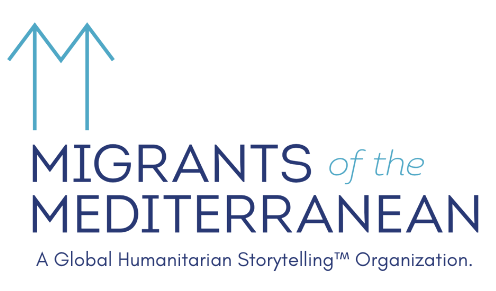Meet Camara
Camara in Frosinone, Italy. 7 May 2021. ©Pamela Kerpius/Migrants of the Mediterranean
by
Pamela Kerpius
Recorded:
7 May 2021
Published:
7 July 2021
Meet Camara.
20 years old and from Gambia.
To reach Europe he crossed six countries: The Gambia, Senegal, Mali, Burkina Faso, Niger, and the most dangerous of all, Libya.
His journey took about four months. He left on the first Friday in April 2016, April 1st, in a bus that took him to Senegal, through Senegal to Mali, and then to Burkina Faso. In Burkina he was captured by the police and was to be deported back to The Gambia. He escaped.
He hid in a forested area where he encountered a woman who took him into her home and gave him food. He stayed for just one night. The next day she showed him the right road to follow to continue his journey. The road pointed him in the way of Niamey, Niger, but this was a distance too far to take on foot.
There was a police checkpoint he evaded, then found a trafficker who took him the rest of the way to Niamey, even if he didn’t have the money to pay upfront for the travel. In Niamey Camara stayed at a bus stop, sleeping there, and taking bread to eat as his primary meal.
To move to the next stop, he waited for his family, who he called to gather money and transfer it to an account to pay the trafficker. It ended up being about two weeks total in Niamey at the terminal before he took a bus to Agadez.
“Only God saved us there.”
He traveled with his own food and water. He stayed in a ghetto in the city. People were always coming and going. They moved so fast it was impossible to count how many where actually there. For his part, he stayed for almost two weeks there in hiding from the police. He remembers it was just after the Ramadan holiday.
He met his uncle along the way, who was working with Foday (Gambia, arrived 22 June 2016), “Fo,” as Camara calls him for short, and they both remember their time encountering one another in Agadez before their journeys would take them separate ways.
Camara crossed the Sahara desert in the back of a pickup truck with 35 people, including one woman. He ate garri to survive, a common West African root vegetable that’s dried and granulated. He brought cigarettes and marijuana to smoke, “You need [your] mind comfortable,” he said about it.
It was three days to make the entire crossing. Everyone in his truck survived. No one fell. But as for what he saw along the way, “Non può dire,” said Camara, he can’t say.
The truck went directly to the city, Sabha, Libya, after a brief three-night stay in a small village beyond the border. Then on a Friday, after their prayers, the truck left for Sabha.
He stayed in a ghetto that, he said, again had too many inhabitants to count – although he guesses it was probably over 500. The area was full of guns. There was forced labor. He was given a phone to call his family. He was instructed to have them gather money and have it transferred to an account to pay his traffickers. He survived this without beatings from the traffickers inside.
“Only God saved us there,” he said about his next stop, Bani Waled, where he stayed for just a day-and-a-half.
He moved next to Tripoli, staying in another ghetto or compound for six days. He left for Garabulli, an area southeast of Tripoli and waited for word for when it was time to leave on the boat. The sea was rough. He waited. It calmed.
Camara crossed the Mediterranean Sea in a rubber dinghy, the lapalapa, at 4:30a.m. on 29 August 2016 with 115 people, including 75 women, one of whom was pregnant, and children. The boat was at sea for eight hours. He was rescued and transferred three times before landing in Lampedusa on 31 August 2016.
He is 24 years of age now and living in Frosinone, Italy where we recorded this story on 7 May 2021.
Camara is an amazing human being.

